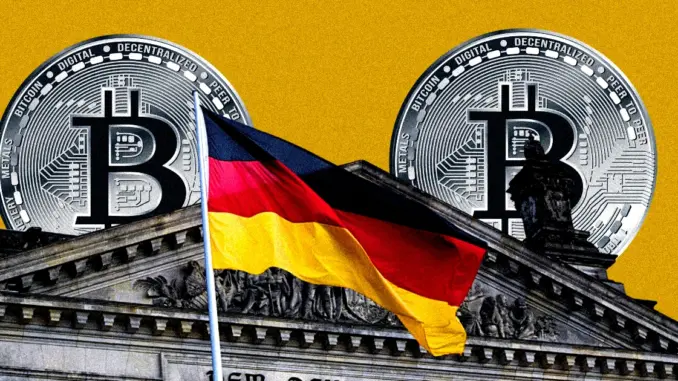
Germany’s upcoming federal election is not just a political event—and it could have a major impact on the country’s financial landscape, as Bitcoin, crypto regulations, and even how the wealthy are taxed are becoming hot topics of German party campaigns. With the election now moved to 23 February, it could reshape how digital assets are handled in Europe’s biggest economy.
Why This Election Matters for Crypto
Germany has been facing political uncertainty since the ruling coalition, led by Chancellor Olaf Scholz, collapsed last year. To stabilize the government, the election was moved up to February 2025 instead of September 2025.
Overall 630 parliament members will be elected through the voting, and at least 316 seats are needed for a majority. The outcome could bring big changes to crypto rules and wealth taxation.
AfD Pushes for Crypto Deregulation
One of the biggest surprises in this election is the stance of the Alternative for Germany (AfD) party which is currently ranking second in the polls according to the Polymarket prediction platform.
The AfD is calling for fewer restrictions on Bitcoin, crypto trading, and digital wallets. However, the party wants businesses and investors to have more freedom when dealing with digital assets, which could drive more adoption in Germany.
Right now, Germany has strict laws under the German Banking Act to regulate crypto activities. But, if AfD gains power, they plan to loosen these rules, making Germany a more crypto-friendly nation. The party also opposes the introduction of a digital euro, arguing that cash should remain the country’s only official legal tender.
Greens Party Aims to Tackle Crypto Crime
While AfD pushes for deregulation, the Greens Party currently in third place has a different plan. They propose creating a nationwide service center to fight financial crimes linked to crypto.
This would help track activities like tax evasion, money laundering, and fraud, ensuring stricter oversight of digital asset
Germany’s Crypto Boom
Despite political uncertainty, Germany’s interest in crypto is stronger than ever. Last year, Deutsche Bank launched a crypto custody service, and DZ Bank introduced a crypto trading pilot program for retail clients.
As election day approaches, the big question remains will Germany loosen crypto laws, or will new regulations make it tougher for digital assets.








Kommentar hinterlassen